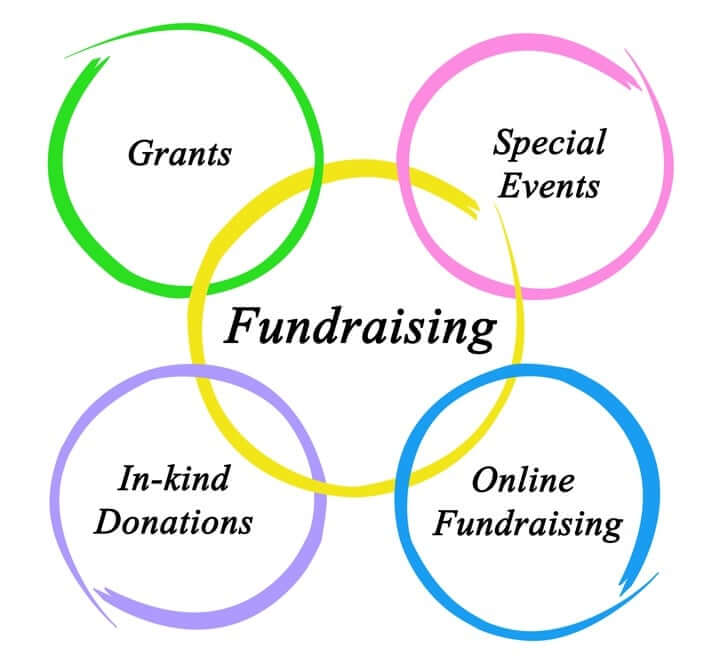What this is: Did you know that for-profit organizations need to register with state charity offices when fundraising for nonprofits?
What this means: State charitable solicitation registration is a requirement for charities in up to 42 states, depending on the type of charity (e.g. veterans organizations) and its fundraising activities.
Why Charities Should Care About Registration Requirements for Professional Fundraisers
Did you know that for-profit organizations need to register with state charity offices when fundraising for nonprofits? State charitable solicitation registration is a requirement for charities in up to 42 states, depending on the type of charity (e.g. veterans organizations) and its fundraising activities. Similarly, for-profit professional fundraisers, such as solicitors and fundraising consultants, sometimes referred to as fundraising counsel, are also required to register in states where they are soliciting charitable donations on behalf of their charitable organization clients.
What is a Professional Fundraiser?
States vary their definition of a professional solicitor and fundraising consultant, but most are similar to the definitions provided in the Model Charitable Solicitations Act:
- Fundraising counsel (or fundraising consultant) means a person who for compensation plans, manages, advises, consults, or prepares material for, or with respect to, the solicitation in this state of contributions for a charitable organization, but who does not solicit contributions and who does not employ, procure, or engage any compensated person to solicit contributions. No lawyer, investment counselor or banker who advises a person to make a contribution shall be deemed, as a result of such advice, to be a fundraising counsel. A bona fide salaried officer, employee or volunteer of a charitable organization shall not be deemed to be a fundraising counsel.
Would you like to read more about building a foundation for your mission? Start with our Nonprofit Services Resource Center.
Note that in the Model Act, a “fundraising counsel” does not engage in solicitation but may still at some time have custody or control of contributions. Many states have modified this definition to specify that this person also never has such custody or control, sometimes defining this more stringent definition as “fundraising consultant”.
- Paid solicitor (or professional solicitor) means a person who for compensation performs for a charitable organization any service in connection with which contributions are, or will be, solicited in this state by such compensated person or by any compensated person he employs, procures, or engages, directly or indirectly to solicit. No lawyer, investment counselor or banker who advises a person to make a charitable contribution shall be deemed, as the result of such advice, to be a paid solicitor. A bona fide salaried officer employee or volunteer of a charitable organization shall not be deemed to be a paid solicitor.
Where Do Professional Fundraisers Need to Register?
For professional solicitors, most states (up to 43 depending on how the state defines “fund raising counsel”) require registration with the state charity regulator, usually a charities division in the Office of the Attorney General or Secretary of State. In addition, some of these states require bonding and most of them require the filing of copies of contracts that solicitors have entered into with charities. Also, all of them require the filing of a professional solicitor registration and compliance filings, usually in the form of annual reporting and sometimes notices throughout the year, including notices regarding fundraising campaigns and the results of these campaigns on behalf of their clients.
Only the following eight states/jurisdictions do not require professional solicitors to register to solicit:
|
|
For fundraising consultants or counsel, fewer states require registration (up to 28 states, depending on their fundraising activities). Similar to the requirements for charities and professional solicitors, all of these states require ongoing filings to comply with charitable solicitation statutes and maintain registrations.
Why Are Fundraiser Registration Requirements Important to Charities?
Nonprofits sometimes rely on the services of professional solicitors or fundraising consultants to assist them in funding their charitable missions. These professional fundraisers provide valuable expertise, advice and sources of funding for many charities throughout the nation. Most of them are responsible professionals oftentimes with experience working for nonprofits with such titles as “Fundraising Development Director” or “Director of Major Gifts”. These fundraisers can branch out on their own or join with larger fundraising firms.
Regardless, when a nonprofit works with these fundraisers they should make sure that they are working with reputable firms and individuals.
In conducting their due diligence, charities can check with their state charities regulator to ensure that the fundraiser they are working with is properly registered or licensed with the state(s) where fundraising activities will take place. Failure to do so could cause embarrassment for the charity, and the individual who contracted with the fundraiser.

Charities that are registered to solicit are required to report the names of professional fundraisers they are working with and, in some states, to provide copies of contracts they have entered into with fundraisers. Note that the state charity offices will cross-reference their registration records, and if you are working with an unregistered fundraiser it will generate a notice to register from the state to the fundraiser. Similarly, because registered professional fundraisers must report to the states the names of the charities they are working with, states will send similar notices to charities that are not registered to solicit. Your charity can avoid being caught off guard by ensuring in advance that all registrations are in order.
Reporting Professional Fundraising Expenses on Form 990
The Internal Revenue Service (IRS) requires charities that work with professional fundraisers to report these expenses on their annual Return of Organization Exempt From Income Tax (Form 990). Part I, Question 16a of the 990 asks charities to report the amount of professional fundraising fees incurred (see also Part IX, column (A), line 11e of the 990).
If expenses for professional fundraising services exceed $15|000, then the IRS also requires the completion of Schedule G (Supplemental Information Regarding Fundraising or Gaming Activities), which requires additional information about the fundraisers charities work with, their activities, and a list of states in which the charity is registered or licensed to solicit contributions, or has been notified it is exempt from registration or licensing.
Reporting these expenses on the Form 990, while not reporting the fundraisers you work with to state charity officials, often results in inquiries from state charity regulators regarding the professional fundraisers with which a charity has entered into written or oral agreements. Again, avoid unexpected notices from state charity regulators by ensuring the information you report on Form 990 is in sync with what you report to state charity officials.
Scrutinize Unregistered and Unlicensed Fundraisers
Professional fundraisers that are not registered or licensed with the state charities offices might be reputable but at the very minimum, it could be considered a “red flag” if they are not registered. In some circumstances, there might be legitimate reasons for not registering, depending on their activities in a state, but nonprofits should consider this when contemplating working with professional fundraisers.
To learn more about professional fundraisers, visit the Association of Fundraising Professionals website at http://www.afpnet.org/.
This article is provided for informational purposes only and should not be considered, or relied upon, as legal advice.



Leave Us A Comment
Did you find this article useful? We'd love to hear your thoughts. Join the conversation by leaving a comment or question below.